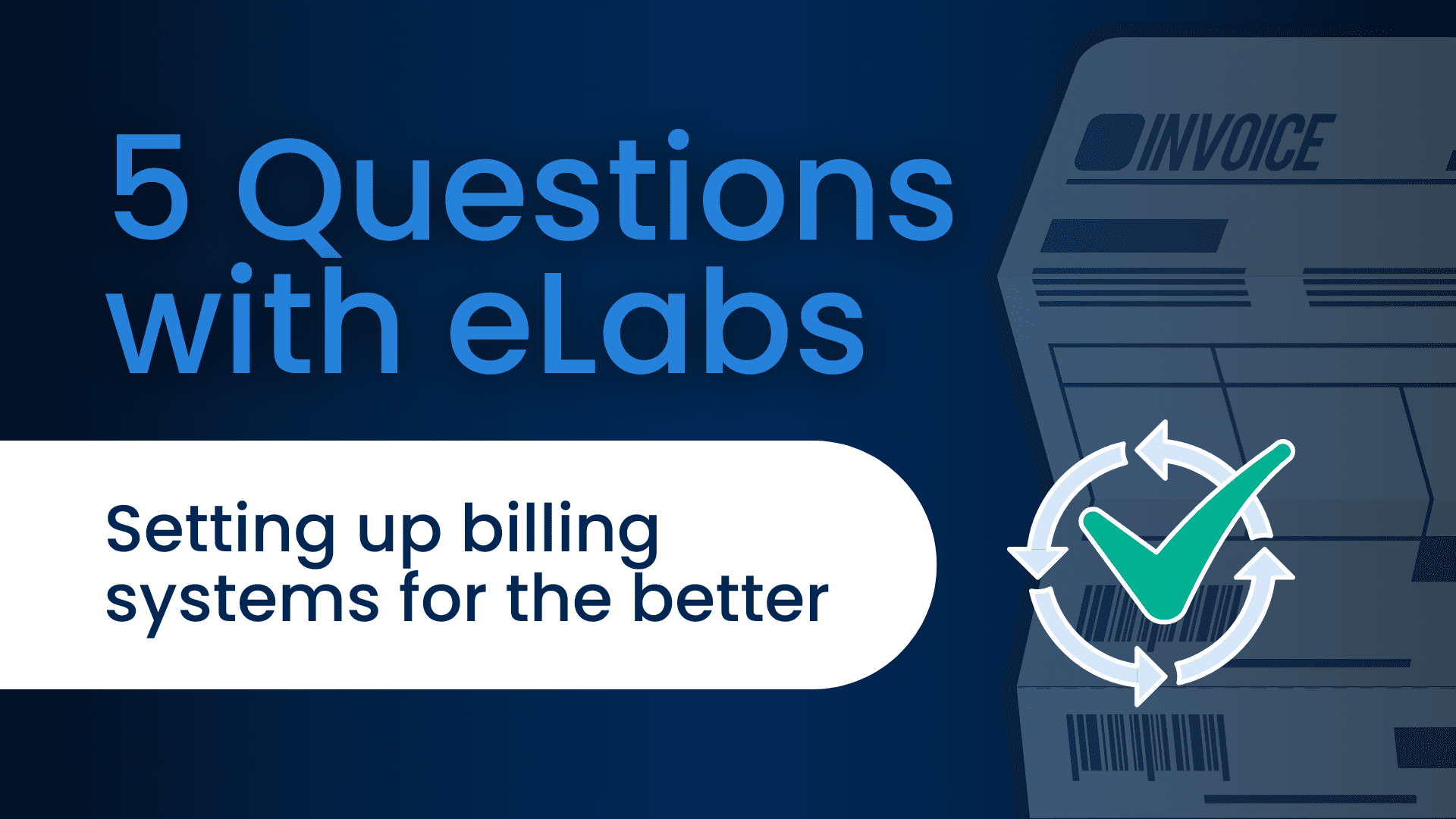Managing recurring billing can create challenges for scaling businesses, and big headaches for finance teams.
Finance teams typically have concerns related to accuracy, security, scalability, collection, and reporting. Is the team charging correctly? Is customer data secure? Can the billing system scale as you grow and accommodate increased demand? Most importantly, is it easy for customers to pay on time and can finance track and analyze cash flow and success?
We recently had the pleasure of meeting the eLabs team at SaaS North, back in November. eLabs is a Canadian company purpose-built to help fast-growing companies take the stress out of complex subscription billing. We caught up with Colin Gibbs to learn more about how eLabs is helping finance teams.
What are the biggest challenges that finance and accounting teams have when it comes to managing recurring billing?
Finance and accounting teams face several challenges when it comes to managing recurring billing. One of the main challenges is the large volume of billing cycles, and companies introducing multiple billing cycles within the same month to spread accounts and cash flow evenly. This becomes harder, especially with fast-growing companies.
Another challenge is the time-sensitive nature of billing cycles, which must be completed within 24 hours. Quality control is also a key issue, as mistakes in data or business rules can heavily impact all accounts within a billing cycle, potentially numbering in the hundreds of thousands.
Accurate accounting for usage components is also a big challenge. Usage data must be gathered and processed from service providers, which can include multiple rate plans, tiers, discounts, pooling, and other complex operations. This process often involves handling large amounts of data, sometimes in millions of records processed daily.
What mistakes do you see companies making?
One common mistake is underestimating the complexity of billing in general, and not having a well-documented business model with clear diagrams of systems and components involved.
Other mistakes we commonly see include: using improper billing frequencies that do not fit the company’s business model, introducing new products/services before ensuring the billing system can handle them, failing to integrate upstream and downstream systems within the billing process, not leveraging billing for marketing purposes, and not properly defining and using key performance indicators (KPI’s) from the billing process to drive company performance.
We work with a lot of scaling businesses and frequently recruit systems consultants to support implementations and integrations. How should finance leaders evaluate AR/billing systems? What questions should they be asking?
If I were a VP of Finance or a CFO looking to evaluate billing platforms here are some of the most important questions I would ask:
- Is your system able to integrate with all of our data sources?
- Are you able to handle billing for all of our current products and services?
- What will the final bill look like?
- What reports and dashboards are available to track our business performance?
- Is your system PCI DSS and SOC2 compliant?
- What client payment methods does your system support?
- Do you offer an online self-serve portal for our clients?
- What will the implementation process look like and how long will it take?
- What flexibility do you have in recognising revenue as well as commission tracking?
- How long does it take to implement billing for a new product or service?
- Does your billing system support usage-based billing, rate plans, pricing tiers, parent-child account structure, discounting, and pooling?
- Does your billing provide a compliant tax calculation?
- Does your billing system provide direct access to billing data for our internal analisis?
- What reports and KPI dashboards do you offer to help us measure business performance?
- Do you offer fully managed billing solutions where your team executes, tests, and delivers bills and payments to our customers?
What are the biggest warning signs that a company needs a new billing system?
There are several warning signs that indicate a company may need a new billing system. One of the most noticeable signs is an increase in customer complaints. Another sign is the struggle to complete billing runs within the 24 hour window. The presence of errors on bills is another obvious one, as well as the inability of the accounting department to properly integrate and bill new products or services.
When customers start to refuse to pay bills due to unclearly presented charges, this may be another red flag. Finally, leaked revenue resulting from improper integration with the back office and lack of data analysis are other clear warning signs.
Can companies expect to see improved retrieval of collections by using subscription/recurring billing? Are there any statistics to back this?
Yes, companies can expect improved collections using subscription/recurring billing. This method provides a predictable and stable revenue stream, as payments are made regularly and automatically the customer is more engaged with the company. Automating the collection process and adding multiple charge attempts and notifications otherwise known as the dunning will further increase the likelihood of successful collections.
Based on our personal experience, monthly billing shows the highest likelihood of bills being paid on time. Simple, accurate, and easy-to-understand bills will increase the certainty of on-time payment.
The front end of recurring billing systems are designed to assist collection agents in answering billing questions, which also aids the client to pay. Automating the collection processes and including multiple charge attempts and notification letters otherwise known as the dunning process will further increase the likelihood of successful collections.
The success of a recurring billing system depends on all of the factors we just talked about such as proper implementation, customer trust and satisfaction, effective communication and billing management. Revenues earned through a subscription model must be recognized based on specific standards, and if not properly managed, can result in audits and compliance issues around revenue recognition.
A strong billing partner will not only solve these immediate challenges but also help you navigate and scale your revenue model well into the future.
To learn more about eLabs, check them out at elabsinc.com



